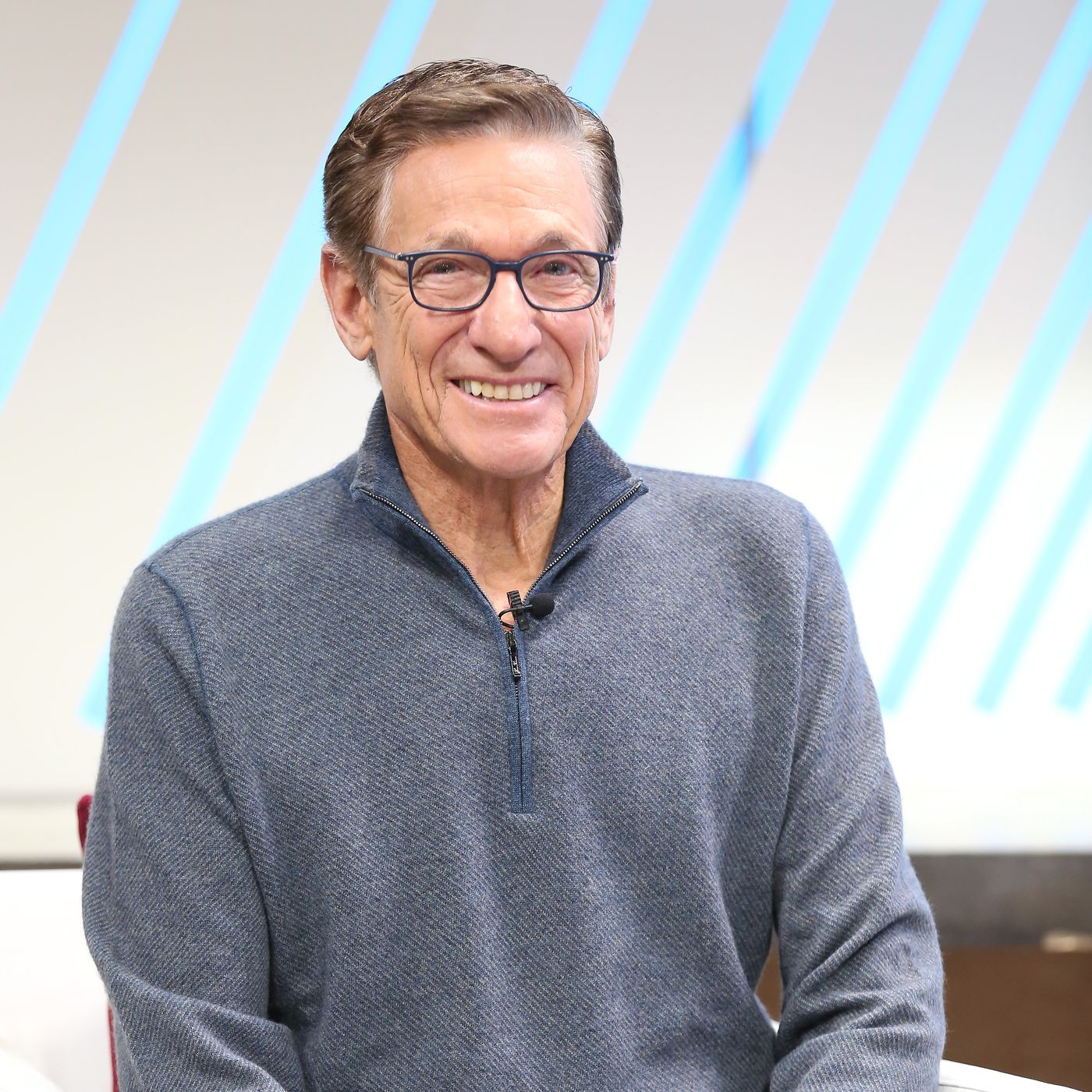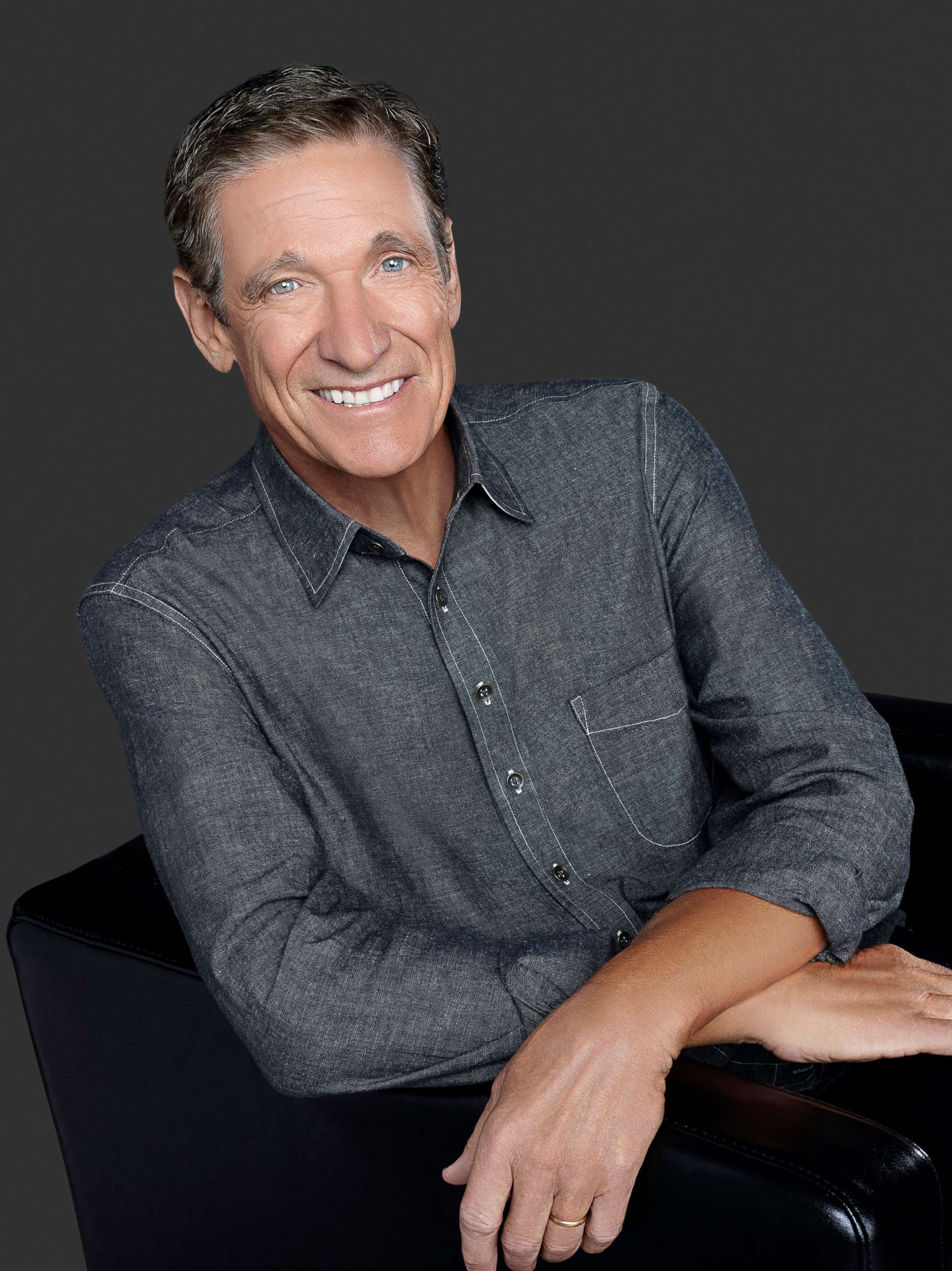Maury Povich - A Television Icon's Long Run
Maury Povich, a name that brings to mind a certain kind of television, has been a fixture in American homes for decades. For many, his show was a part of daily life, offering a unique blend of personal stories and dramatic revelations. He became known for helping people sort out complicated family situations, often with the help of scientific tests. So, it's almost as if he was a trusted figure, someone who saw it all unfold right there on screen, offering a public space for very private matters.
His presence on television spanned a remarkable period, starting in the early days of broadcast news and moving into the world of daytime talk shows. He truly built a long career, shaping how we viewed certain types of personal disputes played out for public viewing. You know, it’s quite something to consider how one person can stay relevant for such a long time in such a fast-paced business, adapting to changing audience tastes and media trends. He had a way of connecting with people that kept them coming back, year after year.
This piece will explore the journey of Maury Povich, from his beginnings as a reporter to his lengthy run as a talk show host. We will look at his life, his work, and the impact he had on popular culture. Basically, we'll try to get a better sense of the person behind the famous name and the enduring program that became a cultural touchstone for many. We will also examine the elements that made his particular brand of television so widely watched and discussed.
Table of Contents
- Who is Maury Povich?
- How Did Maury Povich Get His Start?
- What Made The Maury Povich Show So Popular?
- The Long Run of Maury Povich
- What Was Maury Povich's Role Beyond Hosting?
- Maury Povich's Family Life
- The Legacy of Maury Povich
- Where Can You Still See Maury Povich?
Who is Maury Povich?
Maurice Richard Povich, known to most as Maury, came into the world on January 17, 1939. His birthplace was Washington, District of Columbia, a significant city for someone who would later become a well-known public figure in the media. He would, in time, become a very familiar face on television screens across the nation, often dealing with very personal and emotionally charged situations. In a way, his origins in the nation's capital might have subtly hinted at his future in public communication and presenting information to a wide audience.
Before his rise to fame, Maury Povich pursued an education that would prepare him for a career in speaking to large audiences and reporting on current events. He earned a degree in television journalism from the University of Pennsylvania, a respected institution. This academic background gave him a solid foundation in how news and information are gathered and presented to people. Apparently, he was quite focused on this path from an early age, setting the stage for what was to come in his lengthy and varied professional life.
His journey through different forms of media, from news to talk shows, showed his adaptability and his ability to connect with different kinds of viewers. He became a recognizable personality, someone whose presence could make a show feel distinct. That, in itself, is a special kind of skill, to be able to hold an audience’s attention for so many years. He really carved out a unique place for himself in the landscape of American television.
Maury Povich - Personal Information
| Full Name | Maurice Richard Povich |
| Birth Date | January 17, 1939 |
| Birth Place | Washington, District of Columbia, USA |
| Spouse | Connie Chung |
| Children | 3 (including Susan Povich) |
| Education | University of Pennsylvania (Television Journalism) |
| Occupation | Television Talk Show Host, Journalist, Newscaster, Actor, Producer |
| Years Active | Began as a radio reporter, hosted "Maury" from 1991-2022 |
How Did Maury Povich Get His Start?
Maury Povich began his professional journey not on television, but in the world of radio. He started out as a reporter, gathering stories and sharing them with listeners over the airwaves. This early experience gave him a strong grounding in news gathering and communication, teaching him how to present information clearly and engagingly. It was, you know, a different time for media, where radio held a very prominent place in people's daily lives for getting their news and entertainment.
His move into television broadcast journalism came later, building on those initial skills he had picked up. He spent time in Washington, D.C., learning the ins and outs of television news production and presentation. Eventually, he became a newscaster, presenting information to a wider audience with the added visual element. He also hosted a program called "A Current Affair," which was a step towards the kind of shows he would become famous for, as it dealt with more sensational, real-life stories. That show, in some respects, gave him a taste for discussing personal situations with a public audience, setting the stage for his later work.
These early experiences were pretty important in shaping his on-screen persona and his ability to handle live interviews and unexpected moments. He developed a calm, steady presence that would serve him well throughout his lengthy career. Basically, he learned how to talk to people and how to keep a show moving, no matter what came up. His background in serious news reporting gave him a certain credibility, even when his later shows dealt with more dramatic, personal issues.
What Made The Maury Povich Show So Popular?
The "Maury" show, which ran for an impressive 31 seasons, became a household name for its unique approach to personal problems and family disputes. It was a program where people came to resolve very personal situations, often using tools like paternity tests and lie detector evaluations to find answers. This focus on very personal, sometimes dramatic, issues really captured the attention of many viewers, drawing them in with the promise of truth. People were, basically, drawn to the raw emotions and the hope for resolution that played out on screen, curious to see the outcome.
The appeal of the show, for many, lay in its ability to bring very private matters into the public eye, offering a kind of public forum for people seeking answers and closure. The catchphrases and the moments of truth, especially around paternity results, became instantly recognizable and often quoted. It was, in a way, a shared experience for millions, something people would talk about the next day around the water cooler or with their friends. The sheer unpredictability of the outcomes kept viewers glued to their screens, wondering what would happen next with each new story.
Beyond the serious moments, the show also spawned many cultural references and humorous bits, often shared widely online in the form of short video clips or pictures. The reactions of guests, the dramatic reveals, and Maury Povich’s calm demeanor amidst the chaos, all contributed to its lasting impression and its place in popular culture. These elements, quite frankly, made it more than just a talk show; it became a part of internet culture and everyday conversations for a lot of people, providing both entertainment and a bit of social commentary. The way he handled the guests, even when things got heated, really showed his experience.
The Long Run of Maury Povich
Maury Povich had a very long career in television, far exceeding his own early expectations for how long he would be on air. He once thought that if he could stay on television as a host until he reached 50 years old, that would be a truly great achievement, a sign of a successful career. Yet, he continued to work for many more years beyond that milestone, showing remarkable endurance in a demanding and constantly changing industry. So, it's pretty clear he surpassed his initial hopes by a considerable margin, staying relevant for decades.</

Maury Povich | atelier-yuwa.ciao.jp

Retiring Maury Povich to focus on newspaper business

Maury Povich on what he wants his legacy to be as show ends after 31